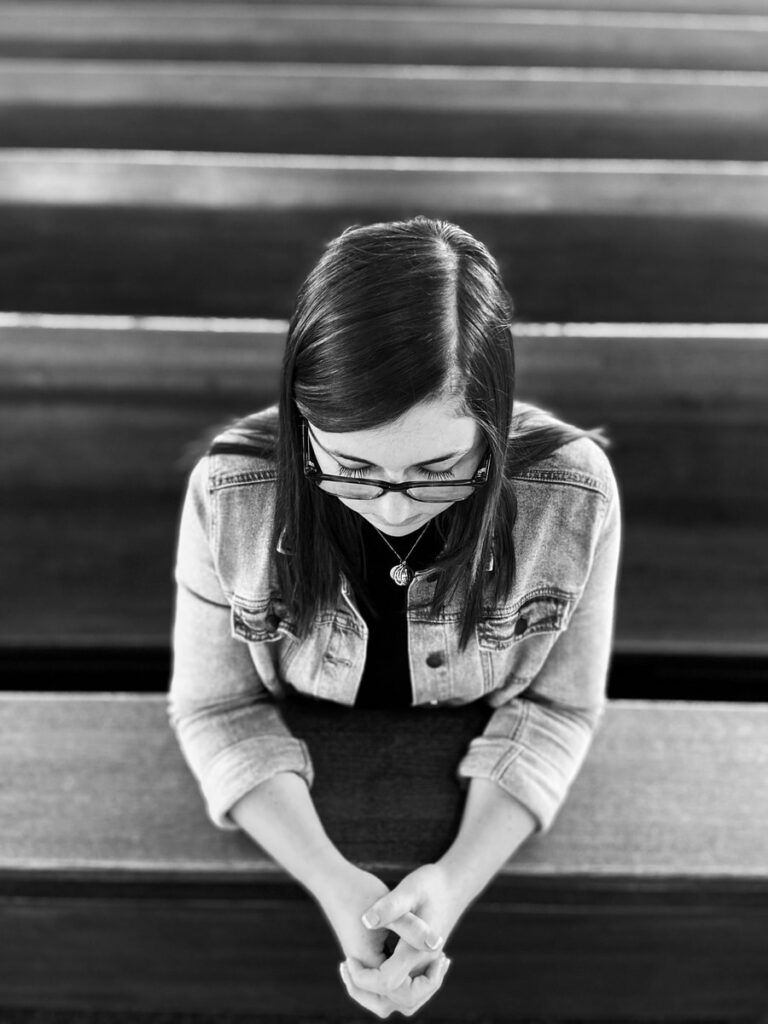The Stages of Spiritual Growth and Freedom
In a recent webinar on the Stages of Spiritual Growth and Freedom there are four points to keep in mind when approaching the dynamic of the spiritual life. She related these points to one’s human development, as well as describing how spiritual direction can aid this process.
Here are some highlights:
The Definition of the Human Person
Beginning the webinar with an introduction to anthropology rooted in the Scripture and Tradition of the Church, Victoria walked attendees through a synthesis of Catholic teachings on the human person. As Genesis 1:26 states, “Then God said: Let us make human beings in our image, after our likeness,” man is made “Imago Dei”, in the image and likeness of God. This is the foundation of our profound dignity as human persons: that we are created in the image and likeness of God, who is a communion of persons in the Holy Trinity. We are earthly creatures (i.e. have a physical body) and yet have a spiritual nature as well, indicating that we are made for something beyond this life. In fact, we are made for someone beyond this life, God himself. We are created for relationship with God and with our brothers and sisters.
Dynamism of Holiness
In light of this anthropology, Victoria described how our dignity as human beings is fulfilled by reaching divine beatitude, or in other words, eternal life with God in heaven. As we move through life, we are on a dynamic, though gradual journey toward intimacy with God. Again, taking note from the Scriptures, Victoria shared how the people of the Old Testament as well as many figures from the Gospels experienced the journey to God gradually. Throughout salvation history, God reveals himself to the people of Israel slowly, and then fully in the Incarnation of his Son, Jesus Christ. It is this same method that God reveals himself to us in prayer and in our response to his grace. Our path toward holiness is a gradual one that is only possible by grace.
Spiritual Growth and Progression
This gradual growth generally involves three stages of development: the purgative stage, the illuminative stage, and the unitive stage. While these stages are not perfectly linear, they tend to mirror the stages of our human development: childhood, adolescence, and adulthood. In the purgative stage, one experiences his or her initial conversion and responds to grace by moving away from a life of sin and pursuing a life of virtue. The illuminative stage involves a state of recollection. In fact, “the fundamental virtue of this state is recollection, that is, a constant attention of the mind and of the affections of the heart to thoughts and sentiments which elevate the soul to God.” In this stage, one begins to take on the mind and heart of Jesus Christ. Finally, the unitive stage is one in which a person experiences union with God by love and the actual experience and exercise of that love. Here prayer becomes more contemplative and virtue becomes more mature, almost heroic. An example of this stage would be St. Maximilian Kolbe, who offered his life for another prisoner during the Holocaust. He did so with heroic love and courage, and also with a sense of peace and humility, demonstrating a high degree of holiness and spiritual maturity.
The Role and Application of Spiritual Direction
In each of these stages, a spiritual director can be helpful and even necessary to sustain one’s growth in holiness. In the purgative stage, a director can be a source of motivation to help the directee take active steps in moving away from a life of sin and toward virtue. In the illuminative stage, a director can help watch and identify the hand of God in your life. Lastly, during the unitive stage, the director can help identify the nuances of growth and help the directee stay the course.
The role of spiritual direction in the development of the spiritual life is an indispensable gift. If you or someone you know is interested in becoming a director, the Spiritual Direction Certificate Program offers an integration of theological and human sciences, as they relate to spiritual direction; learning the art and skills of human interactions and the fruitful experience of supervision. The program includes six online classes, two four-day onsite residencies and a practicum.
Want to learn more about Spiritual Direction? Request additional information online to learn about the courses, faculty and the path towards becoming a Spiritual Director.







